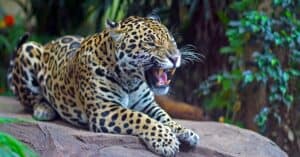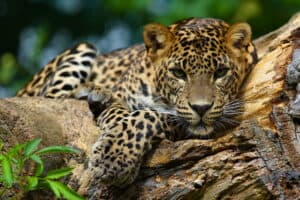Continue reading for our analysis...
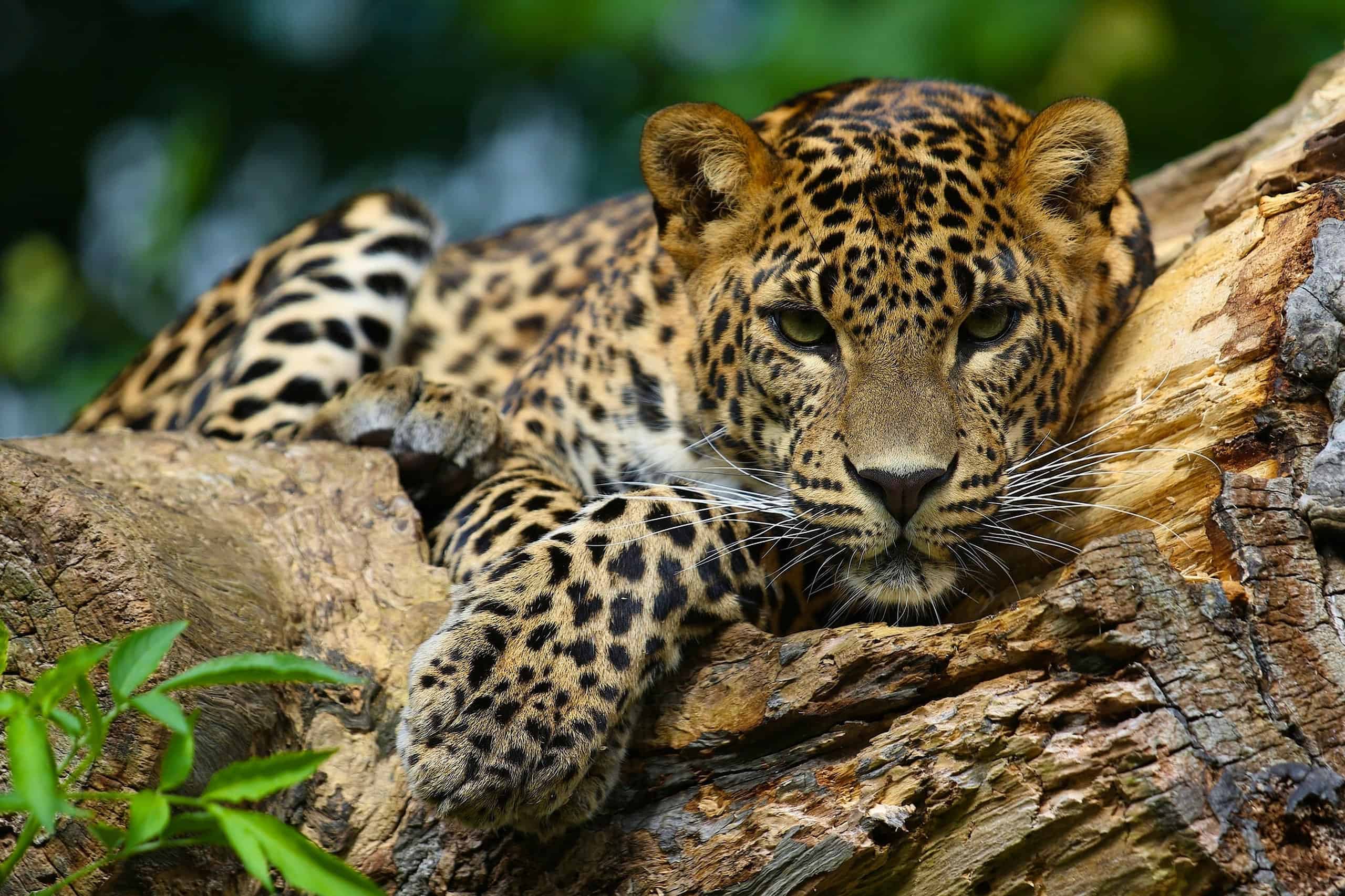
Key Points:
- The jaguar is the biggest cat native to North America and the third-largest cat on the planet, after lions and tigers.
- Jaguars favor nighttime since they can operate under the cover of darkness and have exceptional night vision, with low light and darkness making their vision even better.
- While it’s not clear why the two jaguars are fighting in the video below, these big cats can battle it out over territory or potential mates. It’s not typical for a jaguar fight to get so vicious that one kills the other.
Jaguars — they’re just like us! Sometimes they play with their siblings and other times they fight!
The jaguar is the largest cat that is native to North America and the third-largest cat on the planet, following lions and tigers. Its length from snout to tail is 5 to 8 feet, and its weight ranges from 140 to 300 pounds. They have yellow-brown fur with dark rosette patterns.
A YouTube Short posted below shows just how wild these felines can be — especially toward one another. While there’s no context in this video as to why these two cats are fighting, it likely won’t end well for one of them.
Jaguars are territorial and live alone. With their excrement or by clawing trees, they mark their territory. Females give birth to litters of one to four blind and defenseless cubs each year. Even their own father is no match for the mother, who stays with them and aggressively protects them from any animals that may approach.
In contrast to lions, who chase their prey throughout the night, jaguars lurk and surprise their ground-dwelling prey. Although they are capable of running fairly swiftly, jaguars do not need this ability. They can kill their prey by penetrating the skull with their sharp teeth thanks to their strong jaw muscles.
Where Do Jaguars Live?
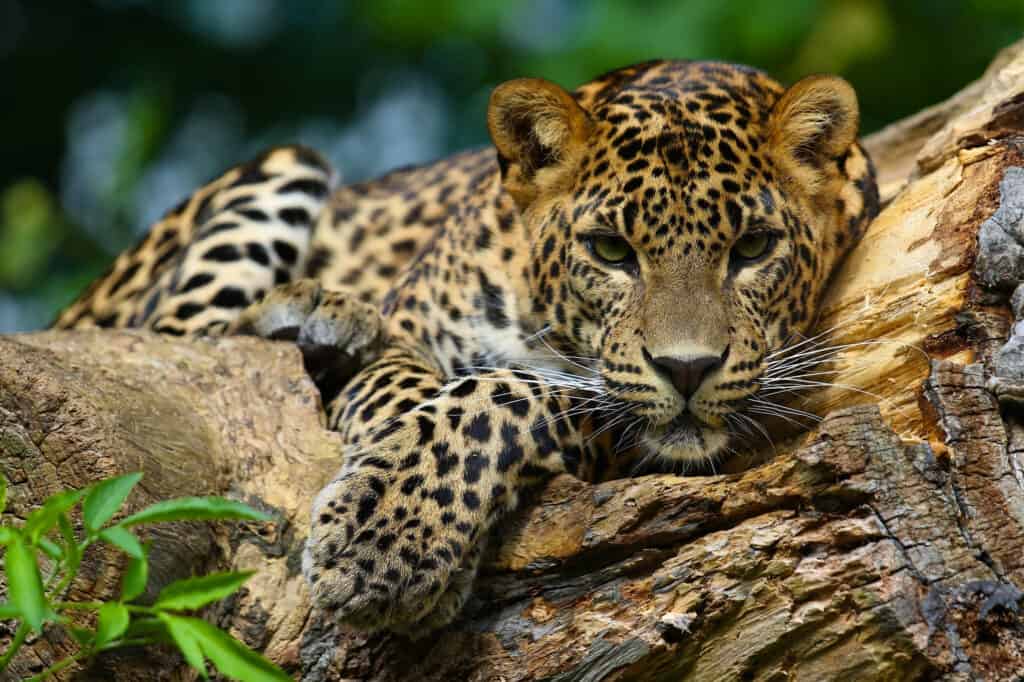
Most jaguar populations are now only in the Amazon basin, with numbers steadily declining.
©L-N/Shutterstock.com
When their range reached as far north as the four corners of the United States and as far south as Argentina, it was much simpler to locate these large cats a hundred years ago. However, they have lost 46% of their historic range due to pressures including deforestation and habitat degradation.
Most jaguar populations are now confined to the Amazon basin and are steadily declining. About 50% of them are located in Brazil, with the rest inhabiting these eight countries that share the Amazon rainforest: Peru, Bolivia, Ecuador, Colombia, Guyana, Suriname, Venezuela, and French Guiana.
Ferocious Felines
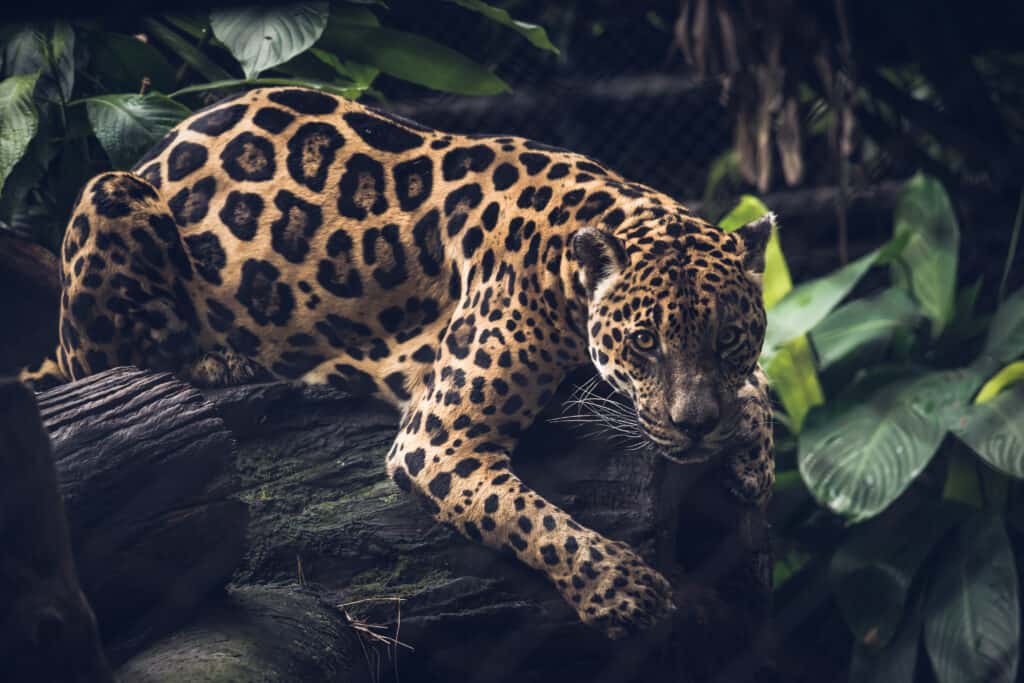
Jaguars hunt at night, avoiding heat fatigue and utilizing their exceptional night vision to detect prey.
©George Arenas/Shutterstock.com
Jaguars favor nighttime since they can operate under the cover of darkness. Hunting at night avoids the problem of heat fatigue, which is a concern for big cats who dwell in tropical climates, in addition to hiding them from the prey. They have exceptional night vision, and in fact, low light and darkness make their vision even better. The jaguar has an edge over other land mammals because of this.
These cats have excellent climbing skills, and once they are in position, jags can remain quiet and wait for their next meal to stray below. Jaguars don’t rustle leaves or walk on twigs when they are higher up, and their scent is less noticeable to any prey.
Jaguars will consume nearly everything. They prey on a wide range of animals, particularly livestock birds, reptiles, and mammals. According to estimates, they consume larger prey over a four-day period in 50% of their kills in order to conserve energy.
Is It Normal Behavior for Two Jaguars to Fight?
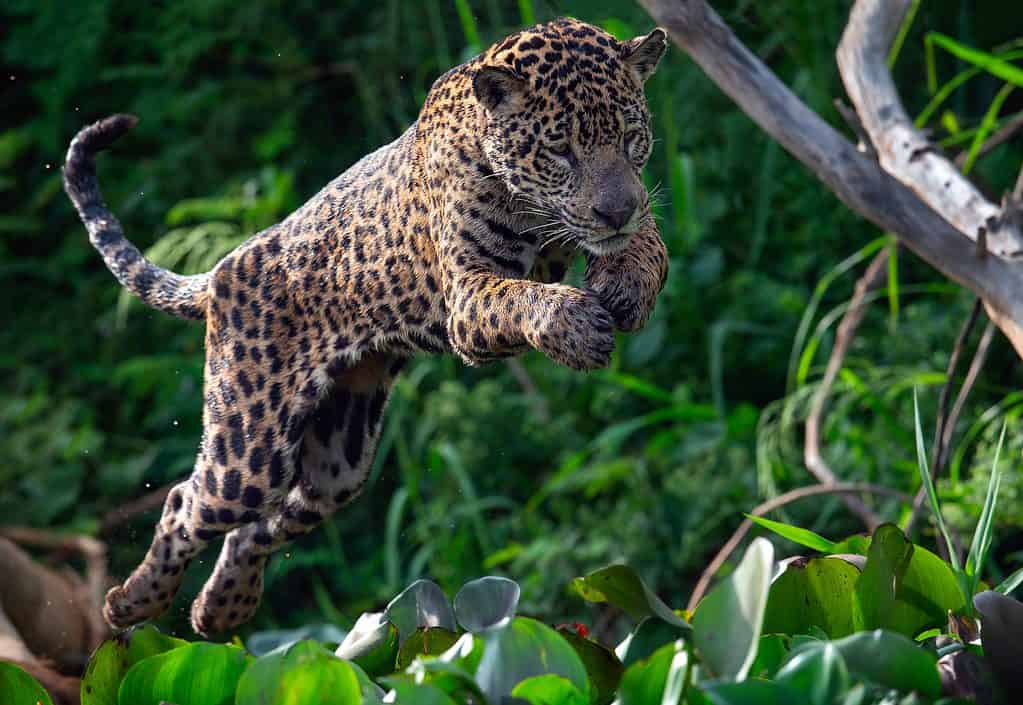
A fight between two jaguars is an opportunity to watch two formidable animals in combat.
©Sergey Uryadnikov/Shutterstock.com
While male lions will fight to the death over dominance in a pride, jaguars are solitary creatures. They are territorial and can fight over that or during the mating season, but it’s not typical for a jaguar fight to get so vicious that one kills the other.
We don’t know the outcome of this particular fight between the two jaguars in the video below and can only imagine how it ended!
Thank you for reading! Have some feedback for us? Contact the AZ Animals editorial team.



